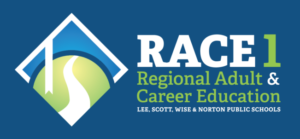Financial Literacy and Adult Learners

by Rebecca Scott
Are topics like payday loans, the gig economy, and comparing banking services part of your instruction? Do you use resources to help students understand and improve their credit scores? Financial literacy can play an important role in stabilizing a family and reducing the money-based trauma that stands between your adult learner and their success. For these reasons, financial literacy or personal finance needs a more central role in our instruction.
Adult education programs have expanded their offerings from the short list of GED® topics to an ever-growing collection of skills needed in the current workforce. Adult education instruction is now much more than high school equivalency completion; it also involves digital literacy, career coaching, soft skills, and vocational training. If your students are like ours, they struggle financially and this affects their focus and retention. Students in poverty or living below the ALICE threshold (See PROGRESS 31 (1), p. 7), who can’t afford childcare, don’t have a reliable car, who are paying off high-interest loans, and are living check-to-check, are hard to retain in classes.
Three years ago, in response to an Office of Adult Education and Literacy (OAEL) Innovation grant application, we joined with a local Head Start program and a regional community action agency to create a learning community of parents in rural Lee County. Financial literacy became one of our critical components when we realized that the county had one of the highest percentages of household accounts in debt collection in the state. Fortunately, our partner, Appalachian Community Action (AppCAA), had unique funding to offer personal finance counseling and assistance to the group. They helped the parents improve their credit scores, become banked, and even paid off credit card debt that was in collection.
Building upon that experience, a core group of our staff participated in two impactful economics and personal finance trainings offered by Dr. Cheryl Ayers, who is the co-director of the Center for Economic Education at Virginia Tech and the founder/director of the U.S. Economic Empowerment Project. You may know Dr. Ayers as an avid supporter of the adult education field who has created student materials and Instructor resources for using basic economics, personal finance, and entrepreneurship as a real-world lens for teaching core GED® subjects and skills-based workforce preparation. (See her free Economic Empowerment Curriculum.) Dr. Ayers also contributed to making Virginia one in 25 states to require an Economics & Personal Finance course for high school graduation and Individual Student Alternative Plan (ISAEP) completion, including writing and recently revising the course learning standards and creating teacher institutes for related content and pedagogy professional development. Her guidance has given our program confidence to address personal finance solutions with our students. This content is now part of our integrated education and training (IET) offerings with the Mountain Empire Community College Road to Success in Virginia (RSVP) program, our job readiness classes for local social services participants and our re-entry efforts at the local regional jail facility.
“There is much work to be done-encouraging programs to include personal finance in their instruction, training instructors, identifying online and print-based materials for classroom and approved distance learning.”
Fast forward to where we are now—in pandemic or, hopefully, soon-to-be-beyond pandemic days. According to several recent studies by the Pew Research Center (Horowitz et al., 2021; Kochhar, 2020; Parker et al., 2020) the groups hardest hit for job or wage loss in the last year have been low-income women, immigrants, young adults, and those without a high school diploma. Many have borrowed money from friends and family, have unpaid rent, and encounter trouble paying their bills. Some doubt they will ever recover financially.
As a program, we have started to address personal finance with a few small populations within our region. We know that we are not doing what we need to do to help all of our learners. In the last twelve months of COVID with closed classrooms and no online or physical access inside our regional jail, we have struggled to find approved distance education instructional materials for personal finance that are print based for adults without Internet access and those who are incarcerated. There is much work to be done—encouraging programs to include personal finance in their instruction, training Instructors, identifying online and print-based materials for classroom and approved distance learning. If you are considering adding resources to help your students with everyday money decisions, check out the following helpful information.
Money Smart for Adults
The newly updated Money Smart for Adults instructor-led curriculum from FDIC provides participants with practical knowledge, skills-building opportunities, and resources they can use to manage their finances with confidence. Instructors can use it to deliver unbiased, relevant, and accurate financial education whether they are new to training or experienced trainers. Downloadable materials include Instructor Guides, PowerPoints, Participant Guides, and Train-the-Trainer videos. Content also addresses adults with disabilities.
The curriculum consists of 14 modules that cover basic financial topics. Each module guides you on what to say and do. The materials are available for immediate download at Money Smart–Teach–For Adults (catalog.fdic.gov).
EVERFI: Financial Literacy for High School
EVERFI: Financial Literacy for High School is a digital education program that teaches students how to make wise financial decisions to promote financial well-being over their lifetime. The interactive lessons in this financial literacy course translate complex financial concepts and help students develop actionable strategies for managing their finances.
Immersive digital environments and diverse characters bring modern, relevant financial education objectives to life. Students accelerate their financial understanding through problem solving, self-reflection, and games that provide real-life scenarios for practice.
Languages: English and Spanish
References:
Horowitz, J. M., Brown, A., & Minkin R. (2021, March 5). A year into the pandemic, long-term financial impact weighs heavily on many Americans. Pew Research Center. https://www.pewresearch.org/social-trends/2021/03/05/a-year-into-the-pandemic-long-term-financial-impact-weighs-heavily-on-many-americans/
Kochhar, R. (2020, June 9). Hispanic women, immigrants, young adults, those with less education hit hardest by COVID-19 job losses. Pew Research Center. https://www.pewresearch.org/fact-tank/2020/06/09/hispanic-women-immigrants-young-adults-those-with-less-education-hit-hardest-by-covid-19-job-losses/
Parker, K, Minkin, R., & Bennett, J. (2020, September 24). Economic fallout from COVID-19 continues to hit lower-income Americans the hardest. Pew Research Center. https://www.pewresearch.org/social-trends/2020/09/24/economic-fallout-from-covid-19-continues-to-hit-lower-income-americans-the-hardest/
 Rebecca Scott is the Program Manager of the Regional Adult & Career Education Program of Lee, Scott, Wise, and Norton Public Schools (RACE 1) which is based in Gate City, Virginia. Instructors with RACE 1 have been offering personal finance resources to special populations of adult learners since 2018.
Rebecca Scott is the Program Manager of the Regional Adult & Career Education Program of Lee, Scott, Wise, and Norton Public Schools (RACE 1) which is based in Gate City, Virginia. Instructors with RACE 1 have been offering personal finance resources to special populations of adult learners since 2018.